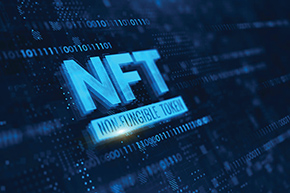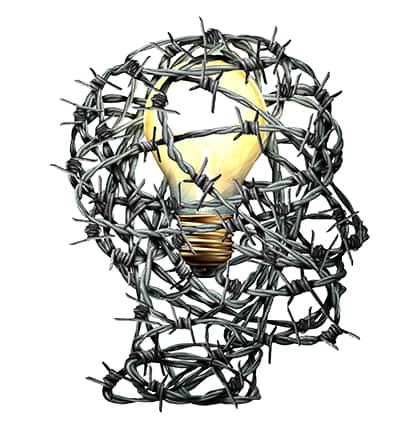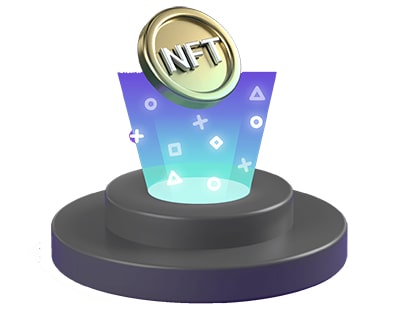NFTs and Intellectual Property
 Non-fungible Tokens (NFTs) have been extremely popular recently, following the significance garnered with the cryptocurrency community in 2017, with some selling for substantial amounts at auctions. They possess multiple uses, from the ability to enhance innovation as well as generate significant proceeds for both creators and purchasers. However, with an increase in creative work entering the NFT market, it is essential to recognize its relationship with intellectual property to keep in mind while associating with the same.
Non-fungible Tokens (NFTs) have been extremely popular recently, following the significance garnered with the cryptocurrency community in 2017, with some selling for substantial amounts at auctions. They possess multiple uses, from the ability to enhance innovation as well as generate significant proceeds for both creators and purchasers. However, with an increase in creative work entering the NFT market, it is essential to recognize its relationship with intellectual property to keep in mind while associating with the same.
NFTs or non-fungible tokens are digital assets similar to other currencies in the crypto world, such as bitcoin, etc. These non-fungible tokens cannot be exchanged for another identical substitution. Their legitimacy of genuineness is verified by way of a blockchain which is inherently a distributer ledger technology. NFTs are unique as digital assets and have multiple uses and values for users. They can generate high demand and increase the revenue of the token's initial creator every time the said token is sold on. This adds to the original sale price value of the token.
NFTs contain software code configured as a 'smart contract' composed of certain intricate information regarding the respective digital or physical assets affiliated with the NFT. It also includes the various rules and rights associated with the specific NFT, such as the percentage of revenue earned by the original creator for resale situations, etc. Unlike fungible tokens, non-non-fungible tokens cannot be substituted or replaced and thus gain their value from being unidentical to other tokens. Regarding fungible tokens, such as crypto-currency or currency that is fiat issued by the government, the units of these tokens are identical to their value. They can thus be exchanged or replaced with each other unit of the respective currency.
NFTs and Intellectual Property
Intellectual property includes those creative works of individuals ranging from literature and art to further designs, symbols, names, etc. The creative works of these individuals can be protected for individuality legally by way of intellectual property rights. Intellectual property, at its core, realizes and protects the rights and monopolies of these works. The owner of the patent right of his/her work is enabled to have the sole authority over the use of that particular work. Trademarks allow intellectual property rights to the owner of the trademark to have the privilege of protection over other brands who use similar names or work regarding the original work, which will be considered illegal under the law. This protection should essentially be attained and grasped by business individuals along with other endeavors to enhance growth and innovation.
Ownership Rights under NFTs
 Considering NFTs, owners can have various creative works and names in the market. However, NFT's do not inherently possess intellectual property rights. There is a significant difference between owning an NFT and owning the underlying intellectual property assets within the NFT. Owners of intellectual property trade their assets and intellectual property in the form of NFT, which potentially undermines the owner's rights over that intellectual property.
Considering NFTs, owners can have various creative works and names in the market. However, NFT's do not inherently possess intellectual property rights. There is a significant difference between owning an NFT and owning the underlying intellectual property assets within the NFT. Owners of intellectual property trade their assets and intellectual property in the form of NFT, which potentially undermines the owner's rights over that intellectual property.
NFTs are blockchain units designed in a manner wherein they are free from the control of third parties, and the assets can subsequently be identically recreated and forwarded multiple times to an unlimited extent. In the case of NFTs, there is a lack of ownership benefits that the purchaser of the NFT may attain as such ownership is questionable, unlike an intellectual property right. At its core, NFTs are maintained to ensure the work's originality and ownership are protected. If a person has copies of the original work, it does not mean they possess the underlying ownership details of that work. Thus, owning copies of work does not ascertain underlying intellectual property rights to that person, which initiates the dilemma for NFT purchasers.
Therefore, NFT owners need to consider the essential requirement to obtain a license for attaining the underlying rights of the original work or product from the original creator or owner of those rights. Only then can they authentically replicate and forward the underlying work. A significant example of this would be the slam-dunk video of US Basketball player Lebron James, an NFT released by the NBA as part of its highlight clips. These NBA NFTs can be exchanged for buying and selling in the 'Top Shot' market platform. The NFT card for the slam-dunk video can be sold in large amounts. However, the copyrights of the original video are retained by the NBA and are still subject to certain terms and conditions for the license according to the NBA. For example, content and captions cannot be changed for a particular video, and further merchandising can only be done after the NBA provides consent. If NFT purchases breach any of the terms and conditions provided, they are subject to suspension of account or removal of NFT without any prior notice. Original owners of NFTs do not have restrictions in terms of licensing for their work and can engage in its reproduction freely.
Sale of NFT and Underlying Asset
NFT sellers can potentially sell the intellectual property rights of the underlying asset to the NFT purchasers. This has to be done by writing, assigning the respective intellectual property. This is not done automatically on the sale of an NFT and has to be expressly clarified in the smart contract or anywhere else respectively.
Original owners of NFTs can also combinedly sell both the NFT and the underlying asset together. The purchaser of the NFT can then utilize the NFT as a digital verification of the ownership of the underlying asset. These cases are pretty uncommon; however, in the event of one, the purchaser must take up specific considerations regarding who is essentially the owner of the underlying asset and who essentially has possession of underlying assets, especially in cases wherein the investment is a digital file.
Licensing Intellectual Property Rights with the NFT
The owner of the intellectual property rights can provide licenses for the authorized use of the intellectual property rights for the underlying asset of the NFT to the purchaser of the NFT, mandating the adherence to terms and conditions provided by the original creator. The owner does not have any restriction concerning the provisions of the terms and conditions and is free to make it as they choose.
Monetization of Intellectual Property
 The original owners of the underlying assets of NFTs can attain royalties on subsequent sales of the NFTs. NFTs enable original owners to increase their revenue directly from the sale of NFTs by coding the smart contract to direct an automatic royalty payment to the original owner every time a sale of the NFT is made. This option enables original owners to enhance their proceeds by attaining multiple revenue streams.
The original owners of the underlying assets of NFTs can attain royalties on subsequent sales of the NFTs. NFTs enable original owners to increase their revenue directly from the sale of NFTs by coding the smart contract to direct an automatic royalty payment to the original owner every time a sale of the NFT is made. This option enables original owners to enhance their proceeds by attaining multiple revenue streams.
In conclusion, NFTs inherently possess multiple opportunities for individuals and businesses along with certain risks that come with them. When selling an NFT, there must be a precise representation and understanding of what is authorized and what is not concerning intellectual property rights when engaging in the sale of NFTs. This will enable businesses and individuals to have authority over their intellectual properties and create revenue from them. Third parties' use of intellectual properties must be supervised appropriately for efficient use and retainment of original rights. Along with the various benefits, there are areas of misuse of intellectual property by way of infringement to copyrights and trademarks, which must be further ascertained and studied to evolve the law in respect to the same. However, it is clear why NFTs are booming in the market.
 English
English
 عربي
عربي Русский
Русский 官话
官话 português
português
 Türk
Türk 


















